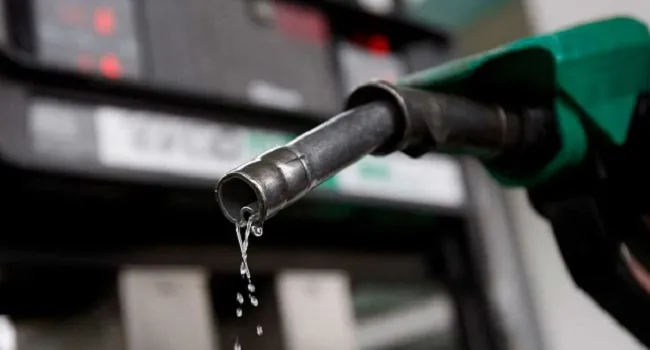By Christopher Okpoko
According to news reports, President Muhammadu Buhari is scheduled to formally inaugurate the 650,000 barrels-per-day Dangote Petroleum Refinery located at the Lekki free trade zone in Lagos on May 22, 2023. This is just a week to the end of the current administration and the inauguration of a new President. It is also a timely one month to the government’s planned phaseout of the fuel subsidy.
Talks about the refinery gained traction about 2014 and Dangote Group started the project in 2016 with an estimated investment of about US$9 billion that has scaled up to about $20 billion due to cost overruns, according to reports. The refinery has an installed crude distillation column described by some analysts as the largest in the world. It is ranked as the largest oil refinery in Africa and one of the largest in the world; and it is expected to produce 50 million liters of gasoline and 15 million liters of diesel fuel per day. At that figure, Dangote Refinery can meet 100% of the Nigerian requirement of all refined products (Gasoline: 53 million litres per day; Diesel: 34 litres per day; Kerosene, 10 million litres per day and Aviation fuel: 2 million litres per day) according to sources. But, in the last few years, as the subsidy mafia gained a stranglehold on the fuel supply chain, the figures bandied for fuel consumption have gone up making projections of Dangote refinery’s impact not fully measurable. Most of those figures are doubted by oil industry analysts. For instance, the daily national consumption is inching up, beyond the realistic estimates. In April 2022, the country’s daily national consumption of petroleum products was put at an average of about 74 million litres. For now, we have to see how the figures settle when imports are stopped and subsidy withdrawn.
Africa’s richest man and owner of the Dangote Refinery, Mr. Aliko Dangote, in an interview for a special edition of London-based The Economist Magazine, titled ‘The World Ahead 2023,’ stated that the refinery could save for Nigeria up to $10 billion in foreign exchange (FX) and also generate another $10 billion in exports when the facility begins operation.
According to him, the refinery is expected to have a significant impact on the Nigerian economy and the African continent as a whole. In addition, the refinery will upshot an increase in the production of petrochemicals, which would drive the growth of the Nigerian oil and gas industry and contribute to the overall economic growth of the country. Furthermore, the Dangote Refinery is expected to play a significant role in reducing incessant fuel scarcity in the country, create job opportunities, reduce the country’s dependence on imported refined petroleum products, contribute to the development of the Nigerian industrial sector, and increase government’s revenue generation.
Speaking of the work it took to get the project off the ground, Alhaji Dangote said it was tough. But, he adds that the rewards will be equally good for him and the country.
At the recent 2023 Upstream Investment Management Services Ltd (NUIMS) Annual Value Assurance Review (AVAR) Workshop which took place in Lagos, Dangote said: “We knew what we were targeting and our target is by the time we finish all these and we get to our own capacity, we will move our total group revenue from $5bn to $27bn which is equivalent to Ghana’s GDP.
He then talks of the challenges that the refinery project encountered, especially being sited in the swampy Lekki peninsula: “A lot of people just talk about our refinery but don’t know what we went through. First of all, to make the land suitable we had to raise the land by 1.5 metres but then when you talk about land is it just land no? Our land is 7 times (the size) of Victoria Island (VI).
“VI is 458 hectares, our land is 2,780 hectares. So it was not land and we had to bring in the three biggest dredging companies and we pumped from the sea and we had a lot of hassle getting approval from the Ministry of Environment… When you are faced with these challenges, in fact, I developed all my gray hair in the last four years.”
He said that 65 million cubic metres of sand was pumped to fill the land over a period of 18 months. “We had to pump in 65 million cubic metres of sand and it took us 18 months. Our CDU (Crude oil Distillation Unit) is the second biggest which is 2780 tonnes. Our biggest equipment is 3,000 metric tonnes- that is 3,000 cars in one location and the cranes to lift that are 5,000 tonnes cranes of which there are only two available in the world.
“So, when we hired that one, we had the delay and despite the cost, we had to detain that one here and pay an infinitive charges fine. In our CDU alone we had to do 13,000 pipes. We wanted to do storage to store 440 million litres of water and we had to do 18,260 pipes.
“We went round the world hiring people with rigs and at the end of the day, we bought our own rigs. People who were doing granite and chips quadrupled their prices waiting for Dangote to come into the market, but we had already planned ahead of them. You know Nigerians. So, what we did was to go and create a capacity of 10 million metric tonnes which is more than the entire capacity of Nigeria in Ogun State where we are mining 800,000 metric tonnes per month.”
Lamenting that Nigerian infrastructure is not built to execute mega projects, Dangote explained that because of difficulties in using the existing Nigerian Ports Authority,
“We had to build a specialised port which was for roll-in and roll-out ships. So, that is how we were able to bring in these equipment.” It is no wonder that the Dangote Refinery cost so much and is classified as a megaproject and the largest single train refinery in the world with a capacity to process 650,000 at full stream.
Without any doubt, the inauguration of Dangote Refinery will be a significant stride towards the development of the Nigerian oil and gas industry, and its impact on the Nigerian economy will be quite enormous, but a lot of questions still needs to be answered, for example:
So many questions to answer. But, very vague answers if any. So far, no clear position has been made by the federal government on what shape the supply of petroleum products will take when Dangote Refinery comes on stream.
While Nigerian government officials have been banking on the refinery’s completion for years to make the country self-sufficient in petroleum products, the terms of the deal have not been spelt out. For instance, what are the guarantees for crude oil supply to the refinery? What are the guarantees for finished products supply to the Nigerian market as a preferred buyer? In the deregulated market expected to operate, will individual product marketers buy directly from Dangote refinery or will the NNPC Limited still act as the wholesale buyer and offtake the products from the refinery? How will the products be evacuated from the refinery, given that there are no evident pipeline links to storage facilities across the country? Perhaps these have been worked out. If so, the better for the country.
So is the Dangote Refinery the silver bullet for Nigeria’s intractable fuel supply Crisis? Looks certainly not, not in the first months at least. For one, though the refinery has been declared open, experts believe that it may not start full operations until later in the year. It expects to start at 500,000 BPD, ramping up to its max of 650,000 by next year.
Nevertheless, the earlier Dangote Refinery begins commercial operations, the better for Nigeria as it will help to catalyse the removal of controversial fuel subsidy, help Nigeria conserve forex and allow the company to begin to tap from the huge global market valued by OPEC at USD 586.27 billion in 2020 and projected to grow to USD 863.19 billion in 2028, growing at compound annual growth rate (CAGR) of 5.0% during the 2021-2028 forecast period.
Moreover, in terms of products, global demand for gasoline and diesel is forecast to increase by 0.6 million barrels per day in 2Q23 while In 3Q23, demand for these two products is forecast to improve further, with global gasoline demand growth forecast at 0.7 million barrels per day and diesel at 0.6 million barrels day.
While those figures are good for the Dangote Group, for Nigeria, it is the prospect of finally getting off the importation of fuels and how it will help stabilise the Forex market. For now the country spends a pretty sum importing petroleum products under a subsidy regime that has corruption smeared all over it. Hopefully, local refining and supply will hobble the subsidy thieves. Or, are we hoping too much?
Fears that Dangote could in turn be a local monopolist and drive up fuel prices have been expressed and are Germaine. However, some comfort come in the fact that the NNPC is fixing two of its refineries in Port Harcourt and Warri and private players are looking to invest in the refining business. Bua, a local diversified business patterned in the mould of the Dangote Group, is planning to build a 200,000 bpd refinery in the Niger Delta, while other marginal players are setting up small operations in the four to five figure capacities. Hopefully, they will help to bridge the supply gap and keep the market stable.










More Stories
Chelsea unveil £30M Striker Delap: six-year deal sealed
Report shows Nigeria has cheapest petrol in West Africa
Nigerian banks with the most bad loans